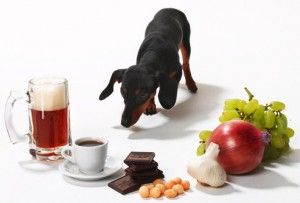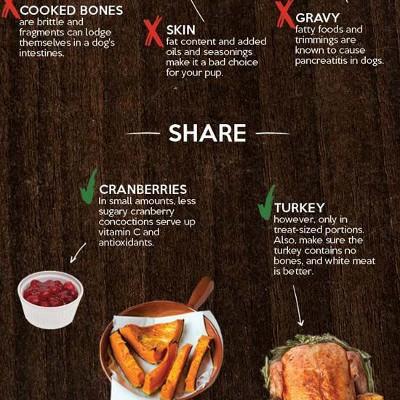By Jim Tedford, Director of Animal Affairs and Alliances
What is it about babies that make them want to instantly put EVERYTHING into their mouths? They seem to want to taste-test pretty much anything they can get in their tiny, adorable hands. For even the most novice parents (or grandparents), it’s pretty clear it is incumbent upon adults to have a watchful eye and a quick hand to police what makes it into the mouth is not a rock or piece of carpet fuzz.
Although we adore them both, there are lots of differences between our pets and our kids. Perhaps one of the greatest differences is that our kids will one day grow up and learn for themselves what should and should not be ingested. Our pets may never quite learn that lesson, so we have a responsibility to keep an eye on them throughout their lives. 
Many household products and foods in your pantry are poisonous to your pet. Read Jim's advice and check out ASPCA's complete list at aspca.org.
There is a very real risk of poisoning. Many common household items that seem harmless at first glance may indeed be quite dangerous to your furry friends. For example, when you flush your car’s radiator and replace the coolant, allowing antifreeze to pool on your driveway may prove deadly to your pets. Animals absolutely love the sweet taste of traditional antifreeze, yet it is highly toxic and results in the slow, painful death of thousands of pets annually.
According to the American Society for the Prevention of Cruelty to Animals (ASPCA) which operates a national Animal Poison Control Center, there are many common foods that can be deadly to our pets. While we may love the taste of chocolate, macadamia nuts and avocado, all can be poisonous when ingested by our animal companions.
Alcoholic beverages can also prove quite dangerous and even deadly when consumed by pets. We might encourage our kids to eat healthful snacks like grapes and raisins, but those same treats can cause kidney failure when given to our pets. Hundreds of plants, including some common houseplants can cause illness and even death to dogs and cats. That asparagus fern decorating your bookcase can cause extreme gastric upset. Even the begonias you might plant this spring are toxic and can cause extreme problems for your pets. 
Jim with Bodie and Sam
For an extensive list of toxic plants and information on poison prevention and treatment, visit the ASPCA’s website. Should you suspect poisoning, seek the services of your nearest veterinarian or call the ASPCA Animal Poison Control Center’s hotline at (888) 426-4435.
An ounce of prevention is certainly worth at least a pound of cure when it comes to poisoning. Make sure toxic and dangerous substances are kept well out of your pets’ reach and you should enjoy a long, happy life together!
ABOUT JIM Jim Tedford serves as PetSafe’s Director of Animal Affairs and Alliances. Working on the front line of animal welfare for over 20 years, Jim has served as CEO for organizations in New York, Louisiana and Tennessee. Prior to joining PetSafe, Jim provided marketing and fundraising services to animal welfare organizations nationwide. Jim holds a degree in animal science from the University of Tennessee at Knoxville. Jim and his wife Ann share their “empty nest” in the Smoky Mountains with adopted dogs Bodie, Sam, and Lila and a formerly homeless macaw, Gipper.


